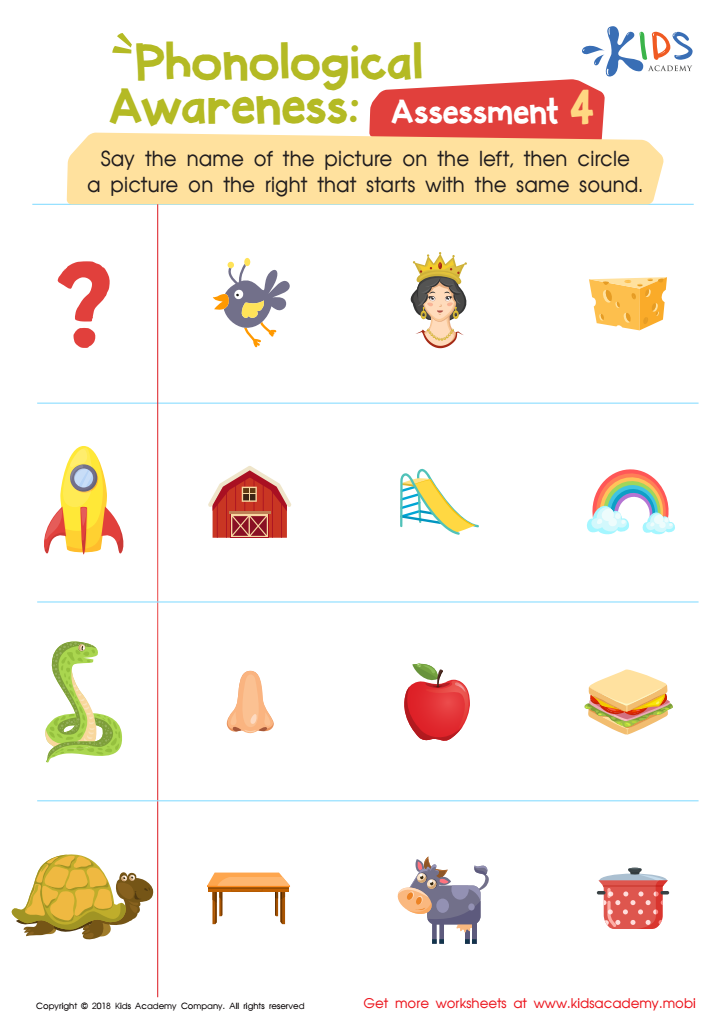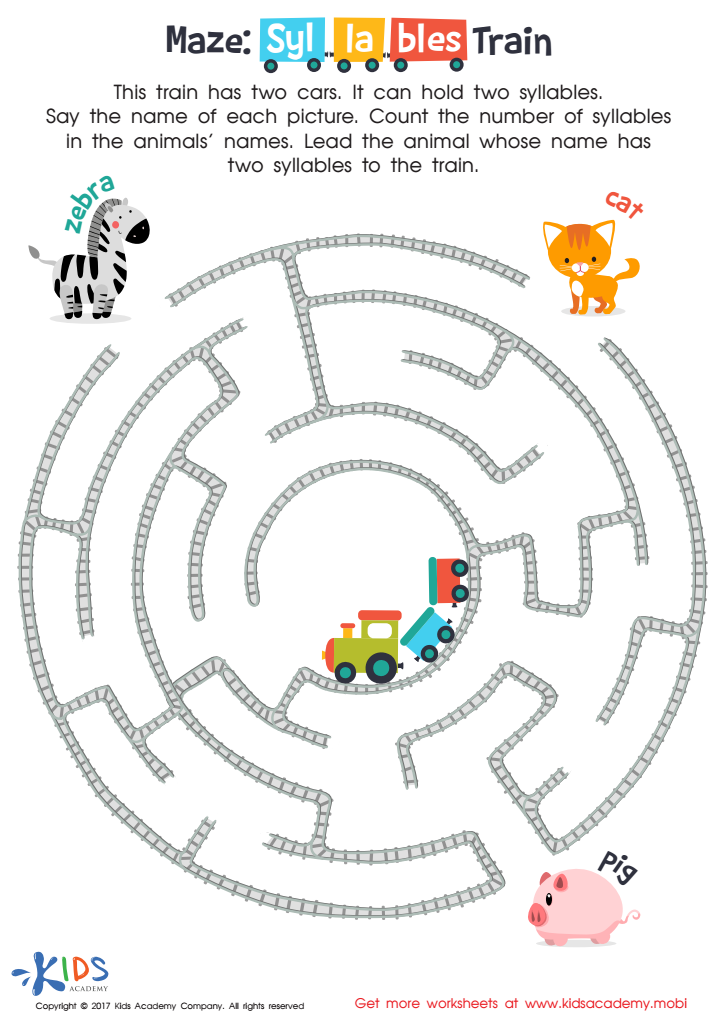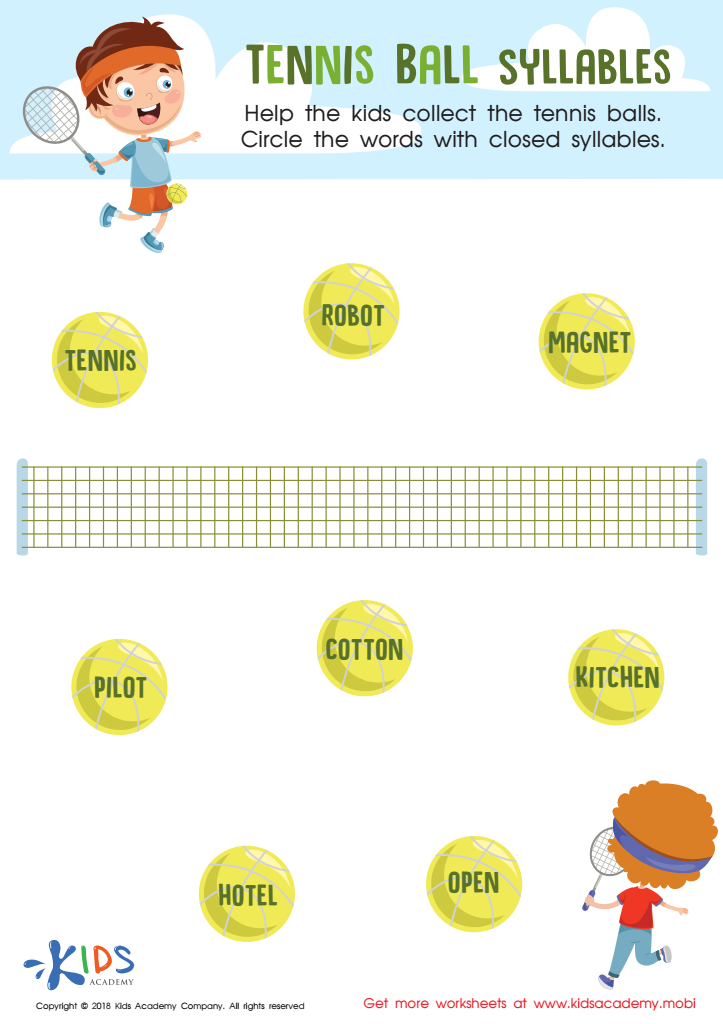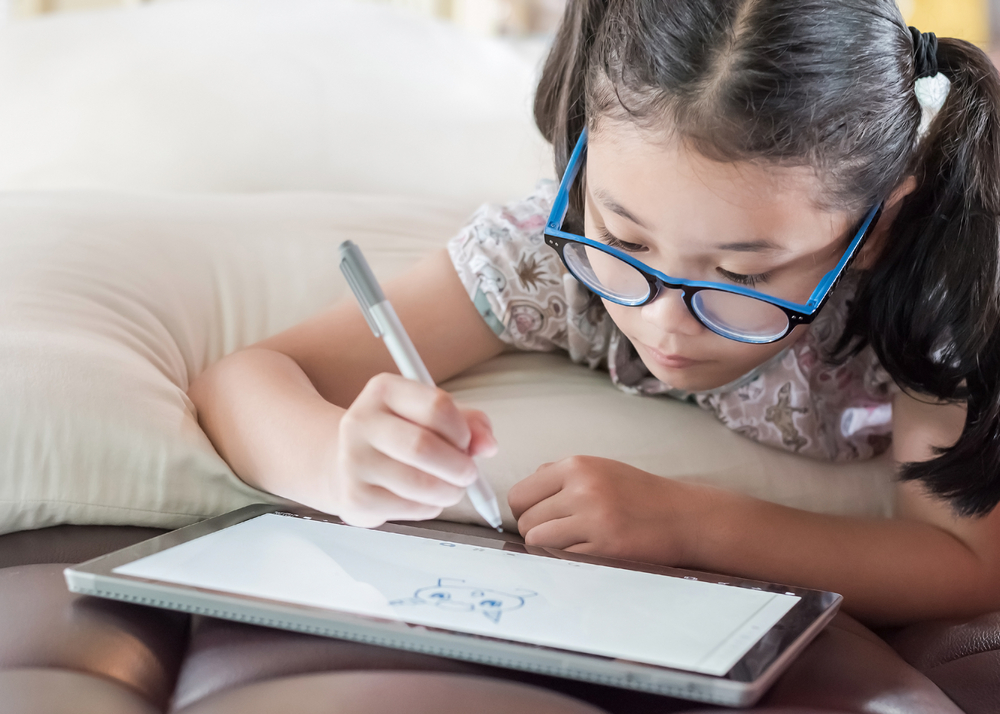Syllable recognition Worksheets for Ages 3-9
3 filtered results
Difficulty Level
Grade
Age
-
From - To
Subject
Activity
Standards
Favorites
With answer key
Interactive


Phonological Awareness: Assessment 4 Worksheet
It can be tricky for young readers to differentiate between sounds in words. Make it fun with this downloadable worksheet! Ask your child to name each picture on the left and match the starting sound with an image on the right. This helps assess their phonics skills and make learning enjoyable.
Phonological Awareness: Assessment 4 Worksheet
Worksheet


Maze Syllables Word Structure Worksheet
Can your child find their way from the start to the finish?
Can your child lead the correct animal to the train using our fun printable maze? It's puzzling from the start, with a two-syllable animal name at the end. See if they can make it to the finish! They'll have a blast!
Maze Syllables Word Structure Worksheet
Worksheet


Tennis Ball Syllables Worksheet
To help your kids become fluent speakers, they need to learn syllables. A word can have one to seven syllables, with longer words having more. For this level, they will be working with one or two syllables. Assist them as they circle the words with closed syllables in this worksheet.
Tennis Ball Syllables Worksheet
Worksheet
 Assign to the classroom
Assign to the classroom










